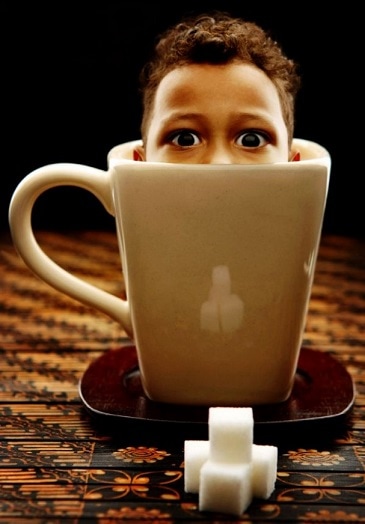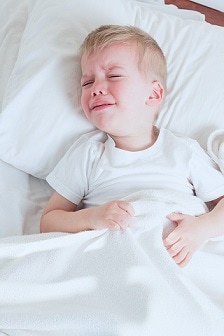|
Coffee, tea, sodas and energy drinks are all sources of caffeine, a bitter substance which stimulates the central nervous system. The effect of caffeine depends on the quantity consumed. It has a positive effect making any individual at any age feel more alert, energetic or awake when consumed in small doses while over consumption of the substance leads to irritability, impaired calcium metabolism, anxiety, rapid heart rate, elevated blood pressures and sleep problems. Many children, adolescents and young adults have increased caffeine intake with the United States leading the charts with approximately 75 percent of kids in this age group habituated to caffeine consumption. Over-caffeinated kids sleep for the least number of hours. Parents indulge in rendering excessive amounts of caffeine to children as they are unaware of the high caffeine concentration in beverages such as teas and colas, these drinks being very commonly consumed across the population. These drinks do not contribute as healthy diet foods and should be substituted with more nutritious choices. Check out www.firsteatright.com for healthy alternatives to caffeine drinks. Pediatric specialists report that some teens find caffeine aiding them with better performance in school and exams. The more the academic burden for your kid, the more he/she may increase the intake of caffeine-containing foods or beverages for improved focus and late-night studies. But this leads to irregular sleep patterns in these children as they drink caffeine to fight off sleep and later face trouble falling asleep again after completing their study chores. How Much is Too Much? Though the FDA does not have a set of guidelines for safe caffeine consumption, the Canadian government recommends a daily caffeine intake of no more than 2.5 mg per kg of body weight. Based on this value, it recommends the daily caffeine limits for children in different age groups:
Caffeine Concentration in Various Foods and Beverages
Food Caffeine (mg) Coffee, 355 ml, coffee shop variety 260 Energy drinks, 236 ml 47–163 Espresso, 29.5 ml 64 Candy, semi-sweet chocolate, 29.5 ml* 18 Hot chocolate, 355 ml, coffee shop variety* 20 Hot tea, 1 cup 48 Cola, 355 ml 48 *Chocolate and chocolate-containing foods are not a major source of caffeine.
0 Comments
Leave a Reply. |
AVOID FRAUD. EAT SMART.+91 7846 800 800
AuthorDietitian & Nutritionist Dr. Nafeesa Imteyaz. Archives
July 2024
Categories
All
Dr. Nafeesa's Blog @blogspot |
- Home
- Written Testimonials
- Consult
- Clinics
- Blogs
-
Diet & Nutrition
- Diabetes Reversal
- IVF IUI not needed for PCOS PCOD Infertility
-
Medical Nutrition
>
-
Disease & Conditions
>
- Infertility | PCOS
- Diabetes Mellitus
- Cholesterol
- Hypothyroid
- Kidney Problems
- Hypertension
- Cardiovascular Diseases
- Liver Diseases
- Gastro intestinal disorder
- Cancer
- Metabolic Disorders
- Orthopedic Disorders
- Eating Disorders
- Dietary Recall
- Weight Record Filled By Clients
- Online Payment Transaction Details
- Online Clients Weight Check Form
- Our Program Package Service Charges
- Weight Record 2017 Clients
- Measurements sent by Clients
- Terms & Conditions Of Payment
- Thanks. Your Form is Submitted
- Video Testimonials
- Lifestyle & Wellness
- Lifestyle & Wellness Blog
- Allergy & Intolerance
- Weight Loss / Gain
- Weight Loss / Slimming Blog
-
Disease & Conditions
>
- Life Cycle Nutrition >
- Sports Nutrition >
- Integrity in Nutrition
- Knowledge Centre
© COPYRIGHT 2022. ALL RIGHTS RESERVED. FRST HEALTHCARE PVT LTD.
Dr. Nafeesa Imteyaz of First Eat Right clinic, is the Best Dietitian Nutritionist in Bangalore. Best Dietitian Nutritionist in Pune. Best Dietitian Nutritionist in Hyderabad. Best Dietitian Nutritionist in Chennai. Best Dietitian Nutritionist in Mumbai. Best Dietitian Nutritionist in Delhi. Best Dietitian Nutritionist in Kolkata.



